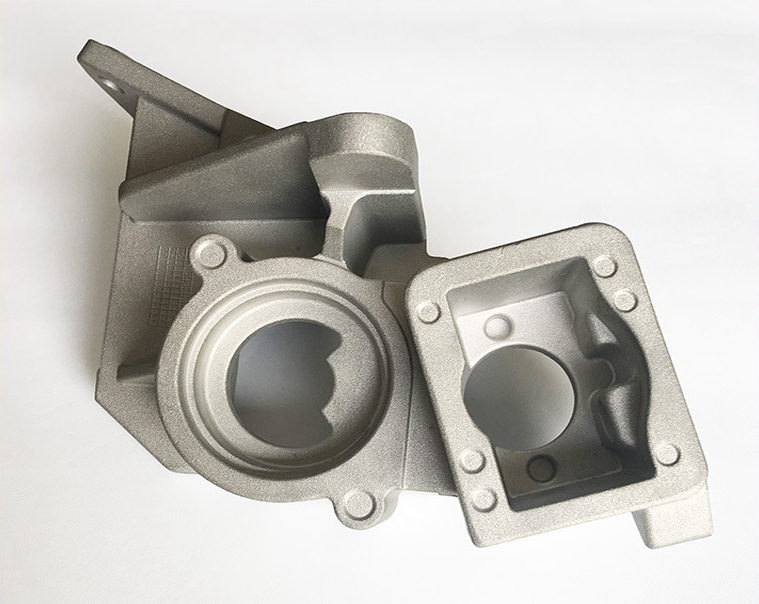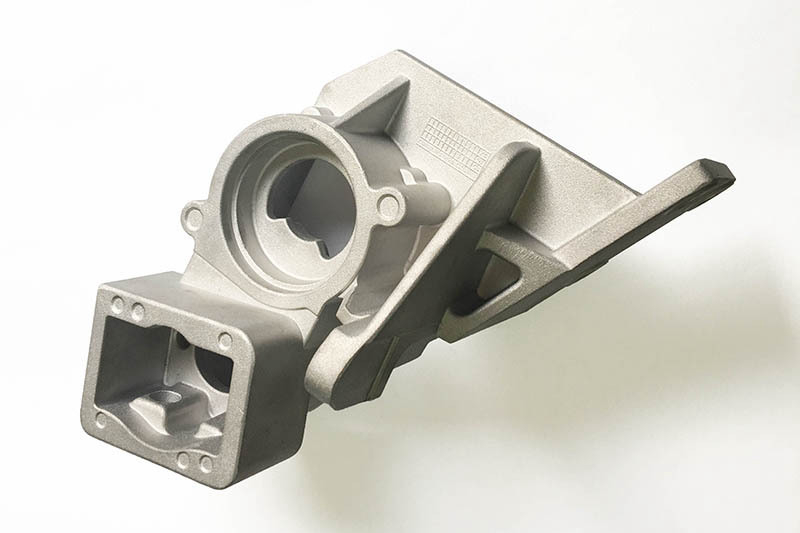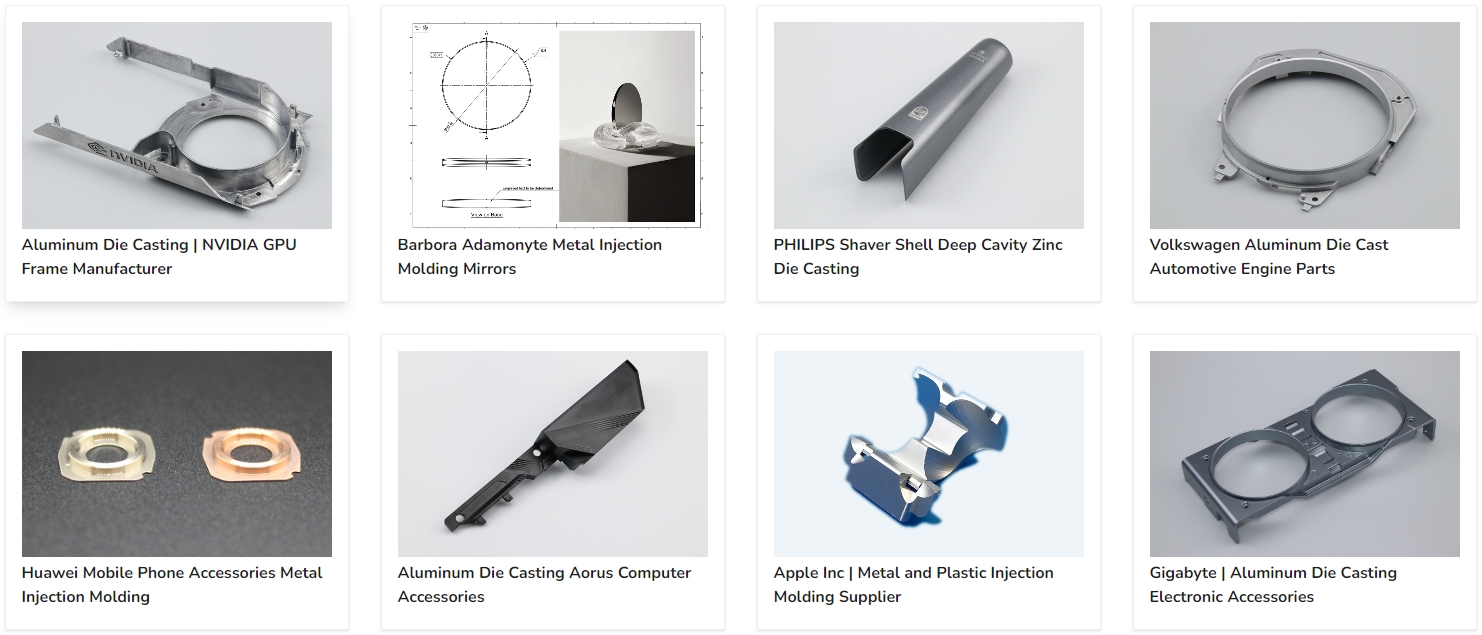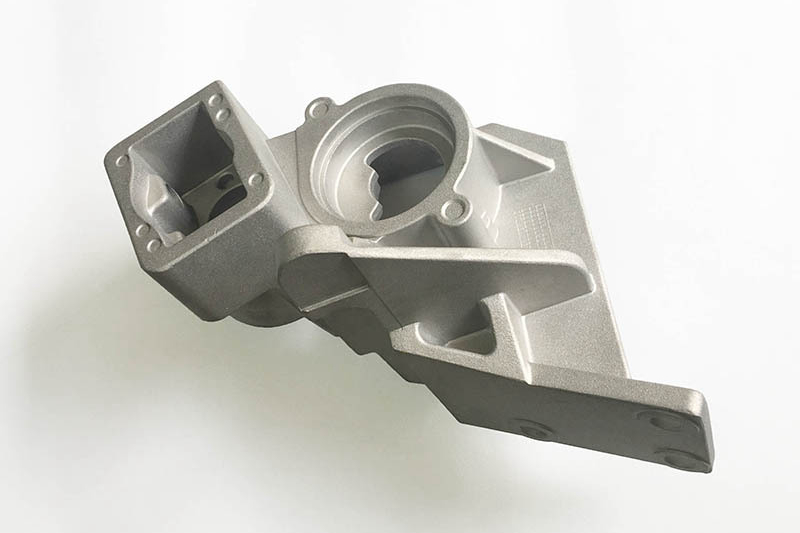Aluminum Die Casting for Medical Device Cylinder Covers
The medical device industry demands precision, reliability, and compliance with stringent regulatory standards. In this case study, we explore the process of manufacturing a custom cylinder cover for a medical device using aluminum alloy die casting. This project exemplifies how Neway Precision leverages advanced manufacturing techniques and materials to deliver high-quality components tailored to the specific needs of our clients.
Our client, a leading innovator in the medical device industry, required a robust, lightweight, and precisely machined cylinder cover for one of their devices. The project posed several challenges, including the need for high precision, specific material properties, and a durable surface finish.
We combined aluminum die casting, CNC machining, threading, sandblasting, and powder coating to meet these requirements. The chosen material, ADC 12, offered the ideal strength, corrosion resistance, and machinability balance. Adhering to ISO 2768 mk tolerance standards ensured that the final product met the quality and performance criteria essential to medical applications.
Manufacturing Process
Aluminum Die Casting
Aluminum die casting is a manufacturing process where molten aluminum is injected into a steel mold under high pressure. This technique is particularly advantageous for producing complex shapes with high precision and excellent surface finish. For the medical device cylinder cover, aluminum die casting was chosen due to its ability to produce parts with tight tolerances and consistent quality.
Advantages in Medical Device Manufacturing:
Precision: Capable of achieving complex geometries and fine details necessary for medical components.
Consistency: Ensures uniformity across large production runs, critical for device reliability.
Efficiency: High production rates and reduced waste make it cost-effective.
CNC Machining
CNC (Computer Numerical Control) machining is employed to refine the die-cast parts, achieving the precise dimensions and features required. By integrating CNC machining, we ensure that every cylinder cover meets exact specifications, enhancing the part's functionality and fit.
Role in Achieving Precise Dimensions:
Accuracy: CNC machines can achieve tolerances as tight as ±0.005 mm.
Complex Features: Enables the addition of intricate details that die casting alone might not achieve.
Surface Finish: Improves surface quality and prepares parts for subsequent processes like threading and coating.
Threading
Threading is a critical process for components that must be assembled with other parts. Precise threading ensures secure and reliable assembly for the medical device cylinder cover.
Importance in Medical Device Components:
Durability: Ensures threads withstand repeated use and sterilization.
Reliability: Accurate threads prevent misalignment and potential device failure.
Techniques Used: Both tapping and thread milling were employed to achieve the highest quality.
Sand Blasting
Sandblasting is used to prepare the surface of the cylinder cover before the final coating. This process involves propelling refined grains of abrasive material at high velocity to clean and roughen the surface.
Purpose in Preparing the Surface:
Surface Preparation: Removes surface contaminants and provides a rough texture for better coating adhesion.
Benefits for Subsequent Finishing: Ensures the powder coating bonds effectively to the substrate, improving durability and appearance.
Powder Coating
Powder coating is the final surface finish applied to the cylinder cover, offering aesthetic and functional benefits. The process involves applying a dry powder, which is then cured under heat to form a smooth, durable coating.
Advantages of Medical Devices:
Durability: Resistant to chipping, scratching, and corrosion, ensuring longevity.
Hygiene: Creates a smooth, non-porous surface that is easy to clean and sterilize.
Process: The powder is electrostatically charged and sprayed onto the part, then cured to create a hard finish.
Material Selection
ADC 12 Aluminum Alloy
The choice of material is crucial in ensuring that the final product meets the specific needs of the medical device industry. ADC 12 aluminum alloy was selected for this project due to its excellent properties and suitability for the intended application.

Properties Making ADC 12 Suitable for Medical Devices:
Strength and Durability: ADC 12 offers a good balance of strength and flexibility, making it ideal for components that must endure mechanical stress and repeated use.
Corrosion Resistance: The natural oxide layer formed on aluminum provides protection against corrosion, which is essential for medical devices that undergo frequent cleaning and sterilization.
Lightweight: Aluminum's low density reduces the device's overall weight, improving ease of handling and portability.
Thermal Conductivity: Effective heat dissipation is critical in many medical devices to prevent overheating and ensure consistent performance.
Machinability: ADC 12 is highly machinable, allowing for precise and efficient secondary operations such as CNC machining and threading.
Specific Benefits for the Cylinder Cover Application:
Dimensional Stability: ADC 12 maintains its shape and dimensions under varying temperatures and mechanical loads, ensuring the cylinder cover fits perfectly with other components.
Surface Finish Compatibility: The alloy's surface characteristics allow for excellent adhesion of coatings, such as powder coating, enhancing the cylinder cover's appearance and functionality.
Cost-Effectiveness: Aluminum alloys like ADC 12 are cost-effective materials that provide a good return on investment by balancing performance and affordability.
Die Cast Aluminum Comparision
Alloy | Si (%) | Cu (%) | Mg (%) | Fe (%) | Zn (%) | Mn (%) | Cr (%) | Other Elements (%) |
|---|---|---|---|---|---|---|---|---|
6061 | 0.4 | 0.25 | 0.85 | 0.15 | 0.10 | 0.15 | 0.04 | <0.15 |
6063 | 0.2-0.6 | 0.1 | 0.45-0.9 | 0.35 | 0.10 | 0.10 | 0.10 | <0.10 |
7075 | 0.4 | 1.2-2.0 | 2.1-2.9 | 0.50 | 5.1-6.1 | 0.30 | 0.18-0.28 | <0.20 |
A356 | 6.5-7.5 | 0.20-0.40 | 0.20-0.45 | 0.20-0.45 | 0.05 | 0.05 | - | <0.10 |
360 | 9.0-10.5 | 0.6 | 0.1 | 0.35 | 1.0 | 0.10 | - | <0.10 |
A360 | 9.0-10.5 | 0.6 | 0.35 | 0.35 | 0.60 | 0.20 | - | <0.15 |
380 | 7.5-9.5 | 2.5-3.5 | 0.3 | 1.3 | - | 0.50 | - | <0.10 |
A380 | 7.5-9.5 | 2.6-3.6 | 0.4 | 1.0 | - | 0.50 | - | <0.10 |
383 (ADC12) | 9.0-10.5 | 1.5-3.5 | 0.3 | 1.0 | - | 0.50 | - | <0.10 |
B390* | 9.0-10.5 | 0.3 | 0.3 | 0.35 | 1.0 | 0.10 | - | <0.10 |
413 | 11.0-13.0 | 1.0-1.5 | 0.5 | 1.3 | - | 0.50 | - | <0.10 |
A413 | 10.0-12.0 | 2.0 | 0.6 | 1.0 | - | 0.50 | - | <0.15 |
Surface Finish Of Aluminum Die Castings
Powder Coating
A medical device component's surface finish is critical for its functional performance and aesthetic appeal. For the custom medical device cylinder cover, powder coating was chosen as the optimal finishing method. This process involves applying a dry powder to the component's surface, which is then cured under heat to form a smooth, durable finish.
Detailed Explanation of the Powder Coating Process:
Surface Preparation: The cylinder cover undergoes thorough cleaning and sandblasting before the powder is applied. It removes any contaminants and creates a slightly roughened surface, which enhances the adhesion of the powder coating.
Application: The powder is electrostatically charged and sprayed onto the grounded cylinder cover. The electrostatic charge causes the powder particles to adhere uniformly to the surface.
Curing: The coated component is placed in an oven where the powder melts and flows into a continuous film. Curing solidifies the coating and creates strong chemical bonds, creating a rugged and durable finish.
How Powder Coating Meets Medical Industry Standards:
Hygiene and Sterilization: The smooth, non-porous surface created by powder coating is easy to clean and sterilize, essential for maintaining hygiene in medical environments.
Durability: Powder coating provides a rigid, wear-resistant surface that can withstand repeated handling, cleaning, and sterilization without degrading.
Chemical Resistance: The coating resists various chemicals and cleaning agents, ensuring the device remains intact and functional.
Aesthetic and Functional Benefits of the Product:
Enhanced Appearance: Powder coating offers a high-quality, attractive finish in various colors and textures, allowing customization to match the client's specifications.
Protection Against Corrosion: The coating acts as a barrier against moisture and other corrosive elements, prolonging the life of the aluminum component.
Improved Performance: The durable surface reduces the risk of scratches, chips, and other surface damage, ensuring that the cylinder cover maintains its integrity and appearance throughout its use.
Manufacturing Process and Results
Prototyping
Manufacturing the medical device cylinder cover began with a comprehensive prototyping phase. This phase was crucial for validating the design, material selection, and manufacturing processes before moving to full-scale production.

Initial Prototyping Phase and Its Significance:
Design Validation: Created initial prototypes to verify the design specifications and ensure the cover met all functional requirements.
Material Testing: Tested ADC 12 aluminum alloy for performance under various conditions, confirming its suitability for the application.
Process Optimization: Identified and refined the most efficient manufacturing processes, including die casting and CNC machining, to achieve the desired quality and precision.
Challenges Faced and Solutions Implemented:
Dimensional Accuracy: Ensured high prototype precision through meticulous CNC machining and frequent quality checks.
Surface Finish: Overcame initial issues with surface imperfections by optimizing sandblasting and powder coating processes.
Fit and Assembly: Conducted rigorous testing to ensure the prototypes fit perfectly with other device components, making necessary design adjustments.
On-Demand Custom Manufacturing
Following the successful prototyping phase, we transitioned to on-demand custom manufacturing to meet the client's requirements for flexibility and quick turnaround times.
Transition from Prototyping to Custom Manufacturing:
Scalable Production: Adapted manufacturing processes for scalable production without compromising quality.
Flexibility: Provided the client with the ability to order varying quantities based on demand, ensuring they had the components they needed when they needed them.
Responsive Adjustments: Made rapid adjustments to the manufacturing process based on client feedback, ensuring continuous improvement and satisfaction.
Flexibility and Responsiveness to Client Needs:
Quick Turnaround: Implemented efficient production schedules to deliver components promptly, reducing the client's time to market.
Customization: Offered customization options for different specifications, finishes, and quantities, catering to the client's evolving needs.
Mass Production
We scaled to mass production once the design and processes were fully validated. This phase focused on maintaining the same high standards of quality and precision achieved in the prototyping and custom manufacturing phases.
Scaling Up Production While Maintaining Quality:
Quality Control: Implemented stringent quality control measures at every production stage to ensure each part met ISO 2768 mk standards.
Efficiency: Optimized manufacturing workflows to increase efficiency and reduce production costs without sacrificing quality.
Consistency: Ensured uniformity and consistency across all produced units, critical for the medical device's reliability and performance.
Efficiency and Cost-Effectiveness Achieved:
Automated Processes: Leveraged die casting and CNC machining automation to enhance productivity and accuracy.
Lean Manufacturing: Applied lean manufacturing principles to minimize waste and improve production efficiency.
Economies of Scale: Benefited from economies of scale, reducing per-unit costs as production volumes increased.
Why Neway Precision?
One-Stop Service
Neway Precision prides itself on offering a comprehensive one-stop service encompassing every stage of the manufacturing process, from initial design to final production. This approach ensures seamless project execution and unmatched convenience for our clients.
Comprehensive Services Offered by Neway Precision:
Design and Engineering Support: Our experienced engineering team collaborates with clients to refine designs, select appropriate materials, and optimize manufacturing processes.
Prototyping and Testing: We provide rapid prototyping services to validate designs and materials, ensuring the final product meets all specifications before full-scale production begins.
Advanced Manufacturing: Utilizing state-of-the-art technologies such as aluminum die casting, CNC machining, and powder coating, we produce high-quality components with precision and efficiency.
Quality Assurance: Rigorous quality control measures are implemented at every stage of production to ensure that all components meet the highest standards of accuracy and reliability.
Logistics and Delivery: We manage production and delivery logistics, ensuring that products reach clients on time and in perfect condition.
How the One-Stop Approach Benefited the Client:
Streamlined Communication: With all services under one roof, clients benefit from streamlined communication and coordination, reducing the risk of misunderstandings and delays.
Cost Efficiency: By consolidating services, we minimize overhead costs and pass these savings on to our clients, offering competitive pricing without compromising on quality.
Time Savings: Our integrated approach accelerates project timelines, enabling clients to bring their products to market faster.
Consistent Quality: Maintaining control over the entire production process ensures consistent quality and adherence to specifications, providing clients with reliable and high-performing components.
Client Testimonials and Feedback:
Client Satisfaction: "Working with Neway Precision has been a game-changer for our production process. Their one-stop service streamlined our project and delivered exceptional quality components on time."
Quality Assurance: "The precision and reliability of the components manufactured by Neway Precision are unmatched. Their commitment to quality and attention to detail have made them our go-to partner for all our manufacturing needs."
Responsive Service: "Neway Precision's flexibility and responsiveness to our needs have been outstanding. They adapted quickly to our changing requirements and ensured we received the best possible solutions."
What We Can Do In Alu Die Casting
Neway has served many world-renowned companies, using its strong manufacturing capabilities and complete quality control system to provide further market competitiveness and quality assurance for major brands.


